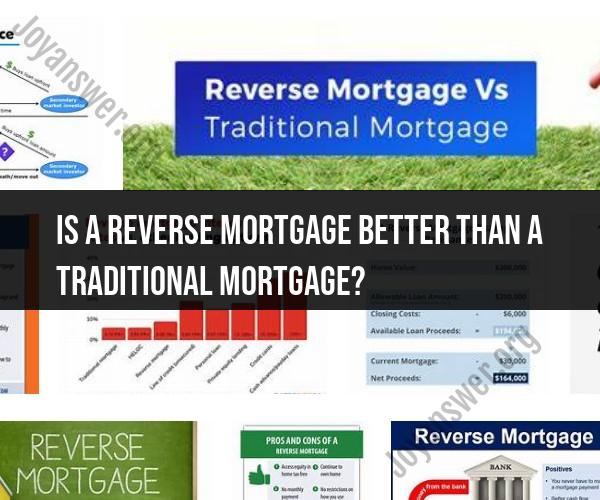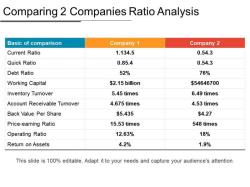Is a reverse mortgage better than a traditional mortgage?
Whether a reverse mortgage or a traditional mortgage is better depends on your individual financial situation, needs, and goals. These two types of mortgages serve different purposes and have distinct features:
Reverse Mortgage:
- Purpose: Reverse mortgages are typically used by homeowners who are at least 62 years old and want to access the equity in their homes without making monthly mortgage payments.
- Payments: In a reverse mortgage, the lender makes payments to the homeowner, either as a lump sum, monthly payments, or a line of credit. The homeowner is not required to make monthly mortgage payments.
- Repayment: The loan is repaid when the homeowner moves out of the home, sells it, or passes away. The loan balance is usually paid off using the proceeds from the home's sale.
- Homeownership: Homeowners retain ownership of the home and are responsible for property taxes, insurance, and maintenance.
- Benefits: Reverse mortgages can provide additional income for retirees, help cover medical expenses, or fund other financial needs.
Traditional Mortgage:
- Purpose: Traditional mortgages are used to purchase a home. Borrowers make monthly mortgage payments to the lender to pay off the loan over time.
- Payments: Borrowers are required to make regular monthly payments, which include both principal and interest.
- Repayment: The loan is typically repaid in full over the loan term, often 15 to 30 years. Homeowners build equity in the home as they make payments.
- Homeownership: Borrowers own the home, but the lender has a lien on the property until the mortgage is paid off. Property taxes, insurance, and maintenance are the homeowner's responsibility.
- Benefits: Traditional mortgages enable homeownership and wealth-building through equity accumulation.
Which one is better for you depends on your financial goals and circumstances:
If you want to stay in your home, access home equity without making monthly payments, and meet specific age requirements, a reverse mortgage might be suitable for supplementing your income.
If you're looking to buy a home, build equity, and make monthly payments to eventually own your home outright, a traditional mortgage is the appropriate choice.
It's crucial to carefully consider the terms, costs, and long-term implications of both options. Additionally, it's advisable to consult with a financial advisor or mortgage professional who can assess your specific situation and provide personalized guidance on which mortgage option aligns with your goals.











